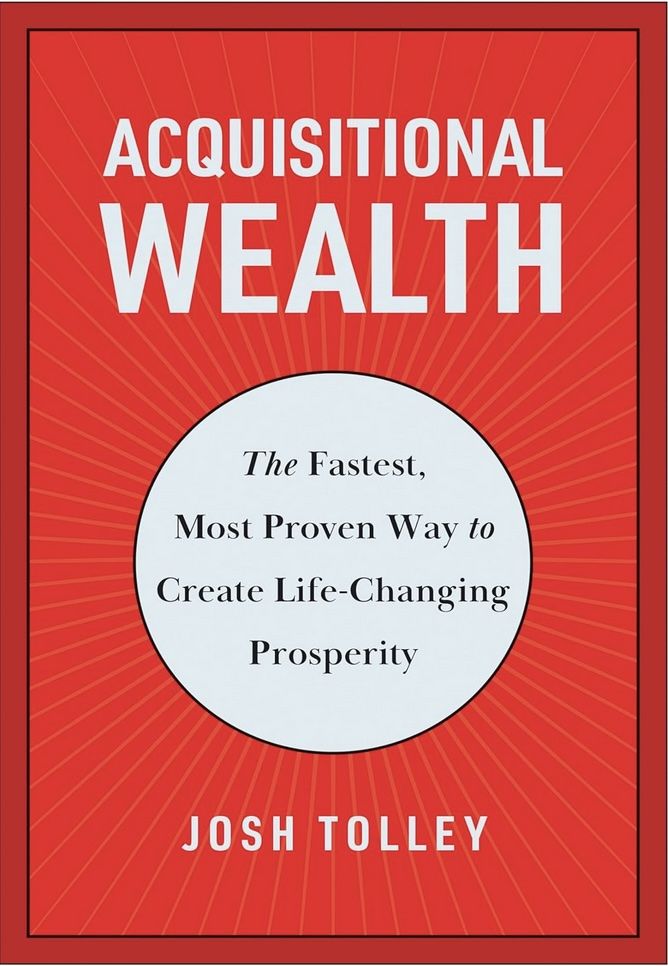Let’s take a simple look at what is considered a good return on investment. Too often, when people are new to this topic, they are coming from a world of low to mediocre returns, and they have been conditioned to believe that what they have been getting, or what they see the masses getting, is considered good.
Wealth Inequality in the U.S. Statistics
As of the end of 2023, 66.9 percent of the total wealth in the U.S. was owned by the top 10 percent of earners, with the lowest 50 percent of earners owning only 1.5 percent of the wealth.
The 4 Types of Money Savers
Because of their experiences, people are typically broken into the following categories.
- There are those who do not save anything and therefore do not even think about getting a return.
- Those who save in 401(k)/IRA, mutual funds or metals but do so in a somewhat passive manner. They put away maybe 10 to 20 percent of their income into “solid and secure” investments and hold them long term but do not really know how much they are getting or, if they do, they do not really know if it’s good or not.
- Those who are trying to put some effort into getting returns: they still may have some in mutual funds (but not much), and they dabble in rentals, multi-family housing, self-directed 401(k)/IRAs, a bit of speculation and possibly in cryptocurrencies.
- And then there are the big dogs: the ones who are doing it well. They do not want to make anything less than what it will take to beat inflation and taxes, which is typically around 15 percent, but they are always looking for wealth-creating returns that are usually above 50 percent.
If we were looking at 100 people, 50 of them would be in the first category, 35 would be in the second category, 13 would be in the third category, and two would be in the last.
To the people in the first category who happen to be reading this, welcome. You are about to leapfrog past all of your peers and the folks in groups two and three. If you do what this book suggests, you just hit the gold mine.
To individuals in the second and third groups, though, I want you to take a moment and ask yourself: “What really is a good return?” Are you thinking a good return is 6–12 percent because you heard some guy on the radio talking about holding on to mutual funds for thirty years? Are you thinking that flipping a home and getting a 50–100 percent return is good?
Let’s consider how people go about getting the returns in the first place. They have to earn money and then place that money somewhere that they deem is either safe and low risk, or higher risk but possibly higher returns.
Do More Than Just Getting a Job and Saving
I’m going to say something controversial: The worst yet most popular way to try to advance yourself financially is through getting a job and saving money earned.
There, I said it. Now let me explain.
“I could never sign a loan if my only income came from a job that I could lose at any moment for a million reasons, few of which would have anything to do with me.”
First of all, the employment aspect of this plan is terrible. I have written extensively on how terrible long-term employment can be in both Evangelpreneur and Quit Your Job or Die. Whenever I speak to crowds and I point out how terrible employment is, I usually get two reactions.
The first is shock and stubbornness, because working is what we are told to do from childhood. Not only is it what we are trained to do, it is what most of our social circle does as well. Because of that, it is where we think security resides.
The second reaction is a bright realization of just how true this information is, as we all know that — contrary to what we tell ourselves — we do not really love our jobs, and we have a sinking feeling they are not really working for us. If your job stopped paying you, you would stop showing up, as you should, so stop telling yourself you love it.
You know your job is not secure because not only can you get fired at any moment, but the stability of the company itself is 100 percent outside of your control. We all know of people who have lost good-paying jobs for no good reason. As a matter of fact, the average employment situation now lasts less than five years. Talk about risky business!
Do More Than Relying on a Bank
Side story here: I was walking with my wife in our neighborhood and we ran into a couple whom we had not met. As we were getting to know each other, they mentioned that they had just moved into the neighborhood and signed the mortgage paperwork only three months ago. When the husband said he was employed by a local energy company, a little chill went down my spine.
I asked if he had any ownership stakes in any businesses. When he said no, I was unable to stop both eyes in my head from getting larger. As my wife and I continued our walk, I remarked, “I do not think I could ever sign a loan document for 15 to 30 years and for hundreds of thousands of dollars if my only income came from a job that I could lose at any moment for a million reasons, few of which would have anything to do with me. It’s just too risky for my blood.”

As far as the savings aspect of the “get a job and save” program, banks are ridiculous places to park your capital as a place to save your money. Most people do not know that when their money is stored in a bank account, the bank is now the full owner of everything in there.
When you put money in the bank, you become what is called a creditor to the bank. Upon getting your bank account you most likely entered into an agreement that allows the bank to have all rights under the agreement, the ability to transfer their rights and make amendments to the agreement all while you hold no ability to do so. That is just bad on your part when it comes to being financially responsible.
However, the problem gets even worse once you realize that in that agreement you signed there are provisions giving the bank the right to decline to process payment for a variety of reasons. Add to this the fact that a bank will lend out money that they do not have at 5 percent or more and then pay you .2 percent, just adding insult to injury.
Doing the Math
When you examine the idea of saving your way to wealth, especially when it comes to low-interest options such as banks, the math becomes ridiculous really quickly. If we assume you are under 50 and will need in the neighborhood of $5 million to retire and you could save $50,000 a year in after-tax and after living expenses, how long will it take you to save $5 million in the bank?
One hundred years!
Even if you think I’m way off on the amount of money you will need to retire, take whatever number you think you will need (remember 20 years from now the cost of living will more than double if the past 300 years are any indication) and divide that number by how much you are able to save. How long will it take you?
See, banks are a foolish option with it comes to saving up enough money to be even self-sufficient let alone comfortably wealthy.
Excerpted from Acquisitional Wealth, copyright © 2024 by Josh Tolley. Reprinted with permission from Matt Holt Books, an imprint of BenBella Books, Inc. All rights reserved





